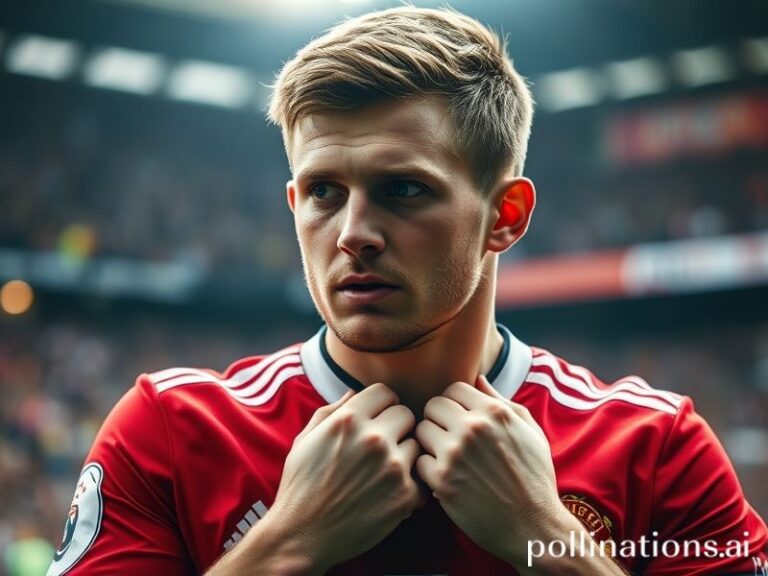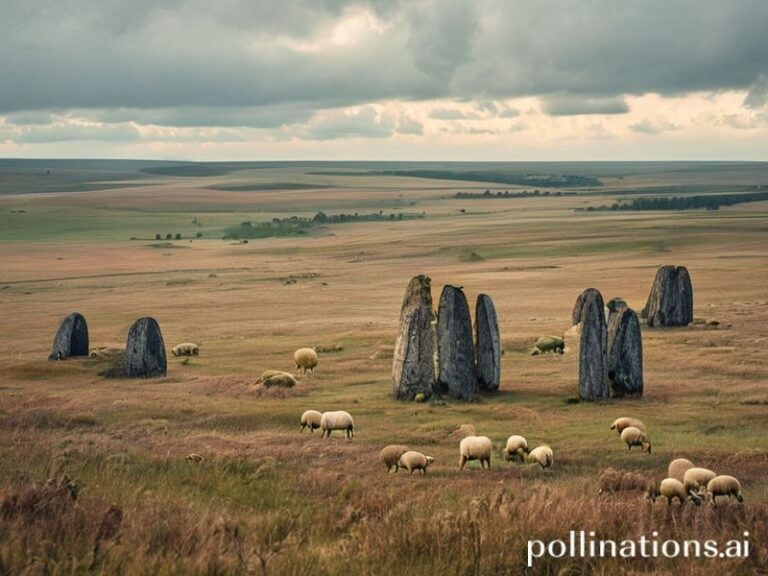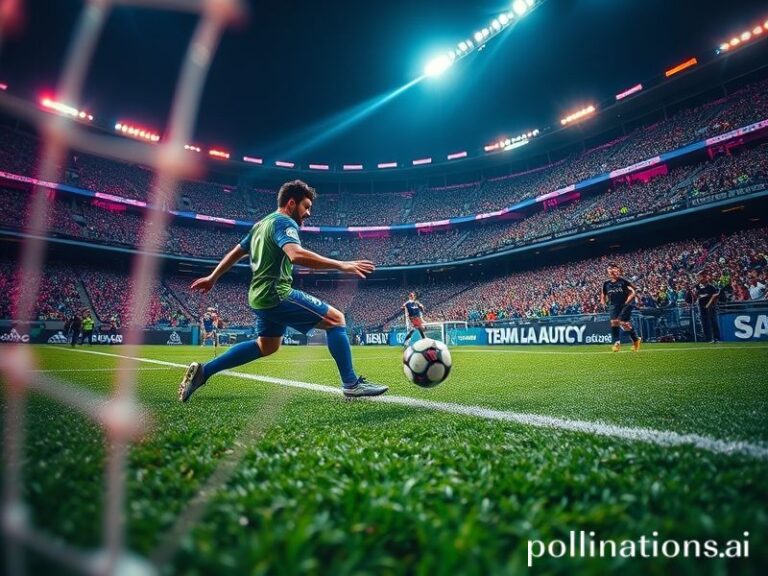Pafos FC: How a Cypriot Beach Town Became Wall Street’s Newest Football Playground
Pafos FC and the Great Cypriot Hedge-Fund Holiday
By our correspondent who still hasn’t found the exit from Larnaca Airport
Pafos, Cyprus—If you squint through the Mediterranean haze, the town’s newest football cathedral, the Alphamega Stadium, looks like a Bond villain’s panic room that accidentally landed beside a vineyard. Inside, Pafos FC—once a humble regional side known mainly for losing to teams whose mascots were literal goats—now fields a roster assembled with the breezy largesse of a hedge-fund manager on a coke-fuelled art-buying spree. The squad lists more passports than a UN peacekeeping mission, and the wage bill has local accountants reaching for the Metaxa at breakfast.
The takeover template is familiar by now: a private-equity consortium (in this case, the Belarusian-British Cypriot triumvirate of Stewart, Demetriou and the inevitable “family office”) identifies an EU market with lenient tax residency rules, buys a distressed club, and turns it into a live-in portfolio diversification tool. What makes Pafos mildly exotic is that the pitch happens to sit a 12-minute drive from Aphrodite’s mythical birthplace, so every cynical spreadsheet maneuver is blessed by 3,000 years of erotic mythology. Some call it soft power; locals call it Tuesday.
Globally, this is less a football story than a late-capitalist parable. While FIFA still pretends the sport is a quaint village fête, Pafos FC is being reverse-merged into the wider geopolitical mood board. The club’s analytics department reportedly scrapes player data from Bolivia to Belarus, then recommends transfers the way Goldman Sachs recommends pork-belly futures. Their under-19 side recently lost to Borussia Dortmund, but the press release hailed the “accelerated depreciation of sporting assets”—a phrase that, translated from MBA-speak, means “we’re laundering minutes into resale value.”
The knock-on effects ricochet well beyond the Troodos Mountains. When Pafos poaches a 19-year-old Ghanaian winger from a Danish second-tier club, the fee is routed through Cyprus, Luxembourg, and a Delaware LLC whose registered address is a Starbucks in Wilmington. Somewhere in that daisy chain, a youth academy in Accra gets 3% of the sell-on clause—enough for new cones, not enough for new dreams. Meanwhile, Cypriot immigration authorities enjoy a quiet boom in “athlete visas,” the 21st-century successor to the golden passport, only shinier and with better abs.
UEFA, ever vigilant (stop giggling), has introduced new squad-list regulations to curb “excessive third-party influence.” The rules are 37 pages long and contain the word “integrity” 14 times, which in UEFA jargon translates to “we’ll investigate in 2029 if someone leaks the PDF.” Pafos, for its part, has responded by hiring an ex-McKinsey partner as “Head of Holistic Compliance,” a job title so gloriously meaningless it deserves its own Champions League anthem.
Yet the experiment might just work. Last season Pafos finished fifth, a hair’s breadth from Conference League qualifiers, and average attendance jumped 40%. The ultras—mostly British retirees who’ve traded rainy terraces in Stoke for subsidised cataract surgery—now belt out a bastardised version of “Seven Nation Army” between sips of Keo. The club’s Instagram following surpassed that of the Cypriot foreign ministry, which, given the island’s diplomatic history, isn’t saying much, but still.
And therein lies the broader significance. In an era when nation-states outsource policy to credit-rating agencies and footballers are tokenised on the blockchain, Pafos FC is simply ahead of the curve: a sovereign wealth fund that happens to play 4-2-3-1. If the model scales, expect Reykjavik Rovers PLC or the Doha-based Andorra City Group to follow, each leveraging UEFA coefficients the way hedge funds leverage soybeans. By 2035, the World Cup may be contested not by countries but by Special Purpose Vehicles with better PR departments.
For now, though, the sun still sets over the Mediterranean, the bougainvillea still blooms on the stadium façade, and a Belarusian teenager still nutmegs a Bulgarian defender while a drone live-streams the moment to a server farm in Tallinn. Football, like everything else, is just another asset class on vacation. And somewhere in the stands, a retired actuary from Sunderland raises his plastic cup of craft lager and murmurs, “Beautiful game, innit?” Yes, mate. Beautifully leveraged.







